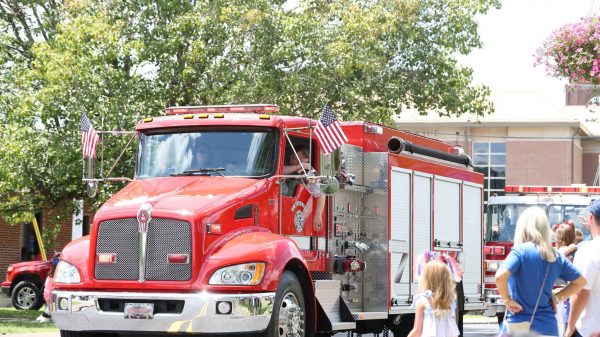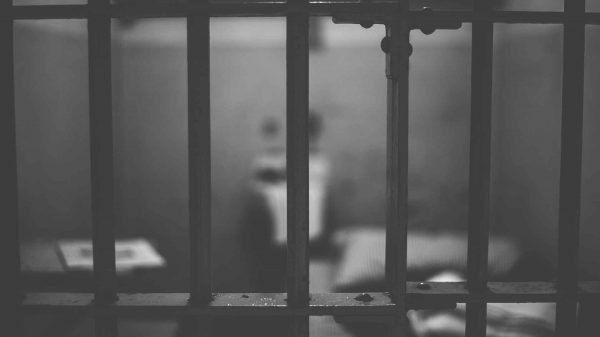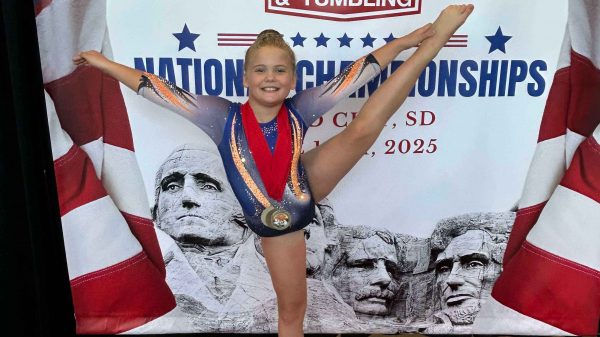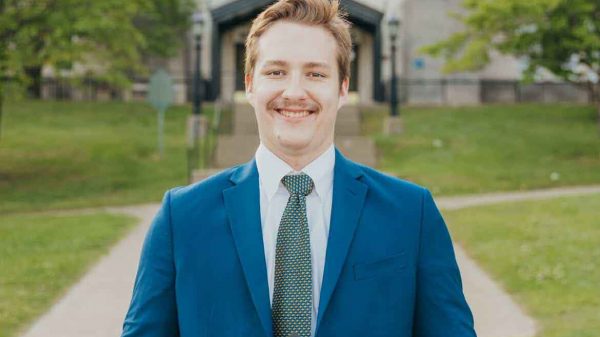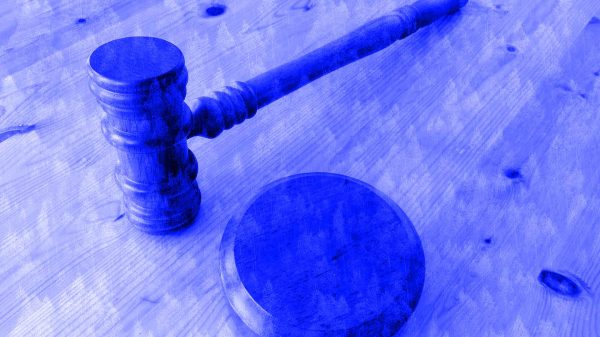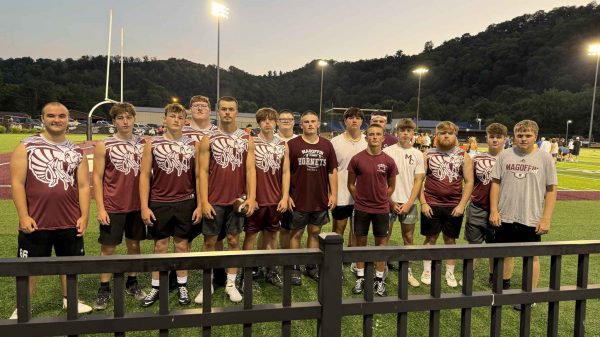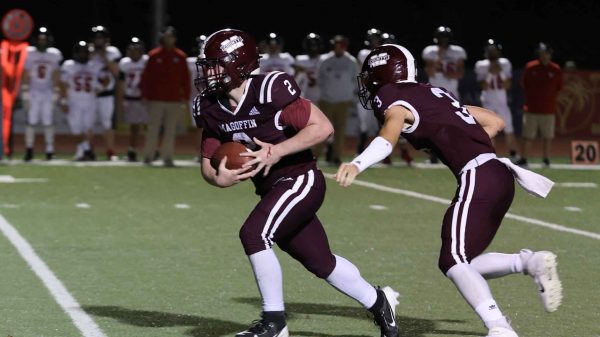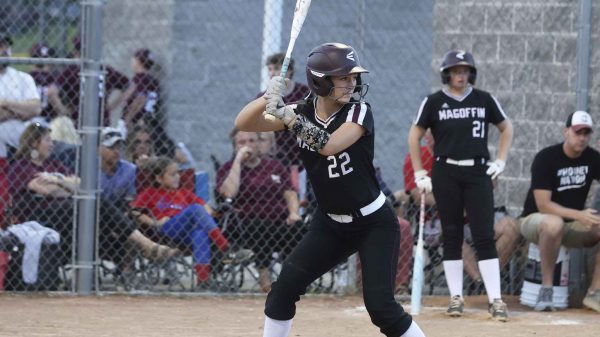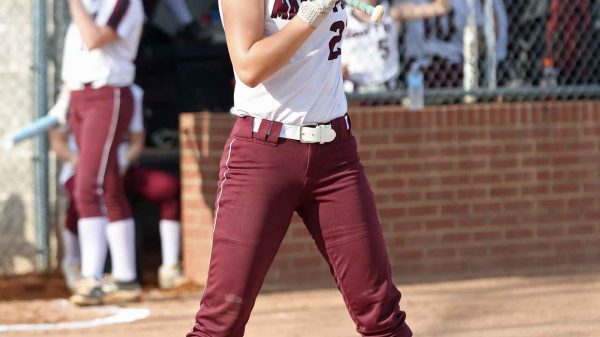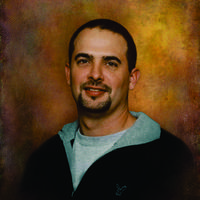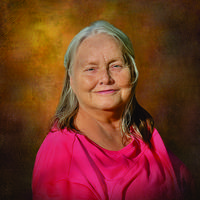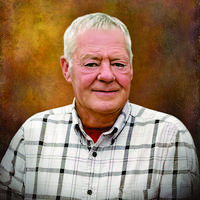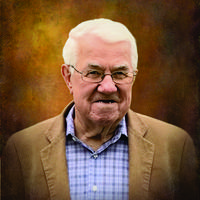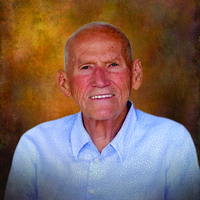“I feel like I’m going to war. I put my scrubs on and it feels like my war clothes. It doesn’t feel real,” Kourtney Shepherd told the Independent about working as a nurse during the current wave of COVID-19.
Shepherd, a Magoffin County native who works the weekend shifts at Saint Joseph Hospital in Lexington, has fought the battle from every direction – as a nurse and as a patient – and talked with the Independent to help stress the seriousness of this virus.
While Kentucky’s first wave of the pandemic included a steady increase of cases, Shepherd said the current wave seems to have hit faster and more intensely, with cases jumping by the day, while many in the community still don’t believe the COVID-19 virus is anything more than Facebook conspiracies and political propaganda. But Shepherd knows first-hand how scary the virus can be.
Shepherd is a 30-year-old nurse, married with two kids. Reasonably healthy and active, with only the one known comorbidity of diabetes in her health chart. She knew it was likely she would contract the virus while working at the hospital, but it still blindsided her last November.
At one of the heaviest times for COVID patients at the hospital, Shepherd returned home on a Monday after working the weekend. Within a day or two of being home her foot started getting really sore and turning red, leading her to go to the ER locally, where she was told it was either a skin infection or blood clot. Over the next couple days she continued to not feel good and on Friday she called her work and they told her to get tested just in case.
Shepherd drove herself to the doctor’s office to be tested and went home to wait for the results, but by 4 a.m. the next morning, she was sweating from head to toe and couldn’t even walk. She crawled into the living room, where her husband was, and told him to call 911. Then she blacked out.
While she has only pieces of memories from that time, she said her husband took her to a local hospital. Her stomach was hurting badly and the ER staff could barely get a blood pressure reading on her, with doctors thinking she had sepsis.
One rapid COVID test later, she was positive, with doctors looking for somewhere to transfer her.
“They came in and told me I needed to be in ICU and will be transferred out, and my husband was sitting in the ER and couldn’t come in there with me,” Kourtney said. “He was calling family and people at work. At one point he called my sister and told her he didn’t know if I would make it.”
Even though she needed more advanced care, there simply were no ICU beds available. She stayed in the ER for quite a while, then in the ICU at Paul B. Hall, before finally getting life-flighted to Saint Joseph’s.
Then, just as an added hurdle, the weather was bad and the helicopter had to do an emergency landing at the airport and transported via ambulance the rest of the way to the hospital. In total, she was in the hospital for a week, most of which she can’t remember.
While COVID is known for respiratory symptoms and the loss of smell and taste, Kourtney said she started with a sore foot, which was a blood clot. She is diabetic, so she had complications from that. All of her labs were critical and she required an insulin drip and other constant meds to keep her blood pressure from bottoming out. It stayed at 70/30 for three days.
Because she had complained of severe abdominal pain, they took her for a scan, finding she had a GI bleed and inflammation from COVID, which is a very atypical COVID symptom, but was the reason for the dangerously low blood pressure.
She never lost her sense of taste or smell, leading doctors to test her multiple times to make sure it was the correct diagnosis. Positive every time.
“It just goes to show you that you can walk around completely asymptomatic and can still spread it without knowing it,” Shepherd said. “That same week three other employees on my unit tested positive, so four of us were out at the same time.”
Two weeks later, after she was starting to feel better, she developed a small cough. She went back to the doctor and she had COVID pneumonia, which was treated with oral antibiotics.
Since getting over the virus, she has developed micro clots, suffering some permanent nerve damage in her index finger on her dominant hand, but she said it has been seven months since the last clot, so she hopes that part is over for her.
Thankfully, with the precautions she took when returning from the hospital, taking off her scrubs outside and taking a shower immediately, no one else in her family contracted the virus.
The current upswing of cases has her very concerned, she told the Independent.
“Just three weeks ago they sent us out an email saying that if we were vaccinated we won’t have to wear masks at work,” Shepherd said. “Almost as soon as they sent it they had to take it back. We went from having four COVID patients to 27 in two days, with almost all of them in ICU.”
Early on in the pandemic she said the hospital called in the staff and told them most would contract the virus and she said that has proven to be true, but this current uptick in cases is quite concerning.
“Last year it was a gradual rise and it stayed steady, with the shutdowns and people wearing masks,” Shepherd said, noting she thinks that helped keep the numbers low. “Now, it’s all happening really fast. Everyone was already short-staffed and then we don’t have enough nurses to take care of people. It’s getting really bad and they’re not putting a lot about it on the news. In Kentucky, it is getting really bad.”
Kourtney said she has noticed that even though COVID is unpredictable, at best, this wave is much scarier.
“Everybody in the hospital is a lot sicker,” Shepherd said. “A couple weeks ago there was someone in there for a tooth infection and just getting antibiotics. That person ended up on the ventilator within four days. The patients are younger and they’re getting sicker.”
She said one positive is the hospital staff do not seem to be catching the virus as much as before, with many already having COVID and the vaccine, but she expects a major nursing shortage that the field cannot afford.
“Hospital vaccine mandates are going up across the board and people are scared and they’re not educated about it,” Shepherd said. “It is scary, but people are not looking at the right stuff. It’s hard when you see one scientist saying one thing and one saying another thing. Which one do you believe? I support people’s right to choose, and I was nervous about taking it, too, but I got the vaccine. I felt bad for a little while, but I’m glad I got it. This second wave is not going to be good. The ICU is so full, and we’ve had to pull ventilators from other areas. We have critical care patients in the ER and if we have one nurse down there or seven, we can’t refuse to treat them, so the nurses in the ER are having to take care of critical care COVID patients because there’s just not enough beds anywhere else to put them.”
Shepherd said she expects all major Kentucky hospitals to be seeing the same thing, with understaffing problems and not enough ICU beds.
All the while, Kourtney is also a mom to two kids, age 2 and 5, and she said she is glad the state has chosen to have school in the school setting.
“I know a lot of people are mad about having to wear a mask, but I think it’s a good idea,” Shepherd said about school starting this week. “I feel there may be a need for other restrictions, like mask mandates in other places. If we can keep infection rates down in adults, we will be able to let the children go to school.”
From her experience with the virus, both on the job and as a patient, she urged the public to wear their masks, wash their hands and try to cut down on the spread of the virus.
“It is real, and you can have it and not even know that you do,” Shepherd said. “You can’t just monitor for symptoms and use that as a basis for masking and you don’t want to transfer to anyone. I didn’t know I had it and it almost cost me my life. It is really scary every single day. It’s really hard to remember what happened. I had it. I take care of patients every single day and watch what happens. People are getting really, really sick, especially this time.”

